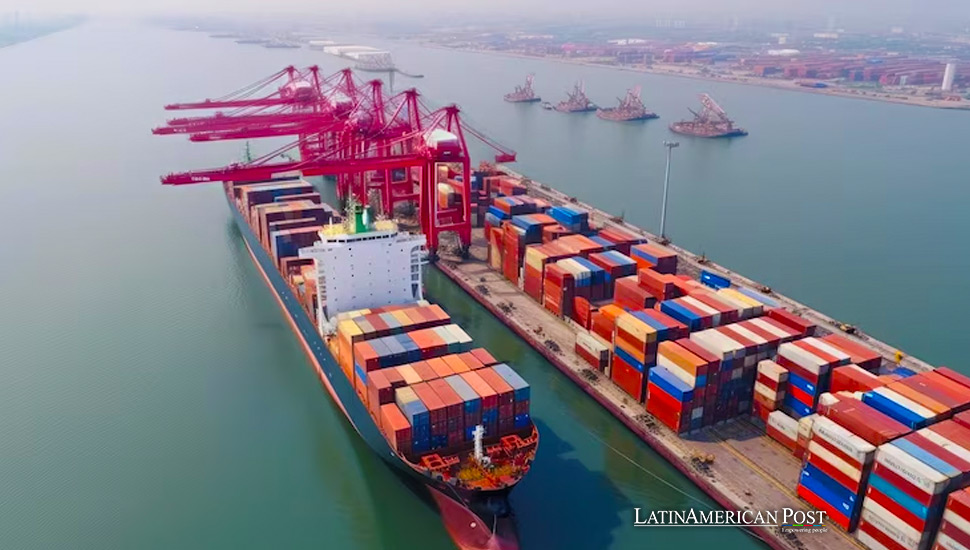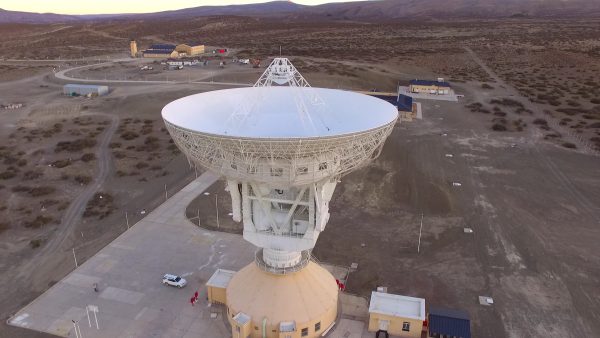)





China has implemented a comprehensive strategic communication strategy in Latin America and the Caribbean (LAC) to increase its influence in the region. This strategy includes diplomacy, study networks, academic cooperation, and the establishment of Confucius Institutes. China has flooded the region with exchange scholarships to attract Latin American students, professors, journalists, and politicians. The Chinese government has also utilized leading technology companies, particularly Huawei, to expand its influence and introduce a pro-communist narrative [5e20e8d5].
China's image in LAC is mixed, with positive perceptions of its economic growth and technological progress, but negative views of its authoritarianism and human rights violations. Confucius Institutes have been established in several Latin American countries to promote Chinese language and culture. Huawei has gained a significant presence in Latin America's telecommunications and technology markets, particularly in 5G networks. The Chinese government is using technology as a bargaining chip to expand its influence and control in the region, raising concerns about surveillance, data privacy, and cybersecurity [5e20e8d5].
In response to China's growing influence in Latin America and the Caribbean, U.S. lawmakers have introduced the Americas Trade and Investment Act. This legislation aims to counter China's expansion by fostering closer economic ties, encouraging the return of American businesses to the region, and providing financial incentives for American companies to invest in Latin America. The proposed act highlights the cost-neutrality to U.S. taxpayers and aims to recapture economic ground while promoting a more equitable and sustainable trade ecosystem in the Americas. The bipartisan support for the bill signals a recognition of Latin America's strategic importance to U.S. interests and the necessity of adopting a collaborative approach to regional challenges [4a7699d2].
China's economic priorities in Latin America and the Caribbean include securing access to raw materials and agricultural goods. In 2019, China increased its investment in the region from US$1 billion to US$8 billion. China's investment in the region focuses on industries such as renewable energy, high-end manufacturing, and space cooperation. These industries accounted for nearly 60% of the total investment flows from China to the region in 2022, amounting to around $3.7 billion. This shift in investment priorities reflects China's recognition of the potential in Latin America's emerging industries and its desire to diversify its economic presence in the region [40706489].
China has also been increasing its space engagement with countries in Latin America and the Caribbean, including collaborations with Venezuela, Bolivia, Argentina, and Peru. China's expanding space capabilities, with a current number of 700 satellites, create imperatives for global engagement and access to ground stations and space communication sites. However, there are concerns about the potential military use of Chinese facilities in the region and the risks of exploitation in times of conflict. It is important for Western governments to engage with China in the space domain with transparency, caution, and effective oversight to mitigate these risks [04ee8c0b].
China's promise of greater collaboration and cooperation in Latin America and the Caribbean was made by Wang Yi, Member of the Political Bureau of the Communist Party of China (CPC) Central Committee and Foreign Minister. He mentioned the upcoming tenth year of the China-CELAC forum, a regional community aimed at uniting and strengthening Latin American and Caribbean states through collaboration with China. He also mentioned that the Forum on China-African Cooperation (FOCAC) is expected to take place in China later in 2024. Wang highlighted the importance of China-US relations and criticized the US for its tactics to suppress China and its lack of credibility and fairness in competition [9b5876fc].
The United States' response to China's growing influence in Latin America and the Caribbean includes the introduction of the Americas Trade and Investment Act. This legislation aims to counter China's expansion by fostering closer economic ties, encouraging the return of American businesses to the region, and providing financial incentives for American companies to invest in Latin America. The proposed act highlights the cost-neutrality to U.S. taxpayers and aims to recapture economic ground while promoting a more equitable and sustainable trade ecosystem in the Americas. The bipartisan support for the bill signals a recognition of Latin America's strategic importance to U.S. interests and the necessity of adopting a collaborative approach to regional challenges [4a7699d2].
To counter China's strategic communication strategy in Latin America and the Caribbean, the United States is recommended to use strategic communications more effectively, expand U.S. technology in the region, increase donations to schools and research centers, and promote higher education scholarships and funding for exchange programs [5e20e8d5].
China's strategic maneuvers in Antigua and Barbuda could signify a broader effort to expand its influence throughout the Western Hemisphere. China plans to establish a Chinese-controlled economic zone in Antigua, equipped with its own infrastructure and passport issuance capabilities. Concerns are raised about China's potential military ambitions in the region. China's Belt and Road Initiative has garnered significant participation from countries within the U.S. Southern Command's jurisdiction, but mounting debt and asset seizures highlight the risks associated with China's economic influence. Experts warn that China's actions pose a significant security threat to the United States, comparable to the Cuban Missile Crisis. Antiguan Prime Minister Gaston Browne defends his nation's partnership with China, while critics accuse him of compromising Antigua's sovereignty and overreliance on China's support. The evolving dynamics in the Caribbean highlight the broader struggle for influence between the United States and China [c8953cc4].